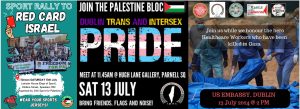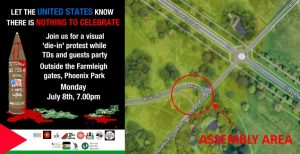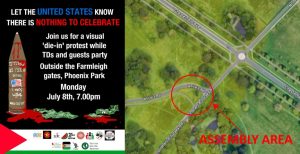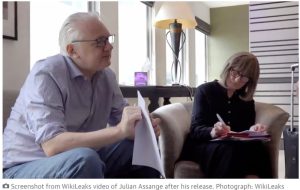In a sign of growing political opposition to uranium weapons, Costa Rica has passed legislation banning their production in its Free Trade Zones. Zonas Francas or Free Ports are common throughout Latin America and are seen as a means of boosting employment in deprived areas by offering favourable operating conditions to foreign companies. This usually means lower tax and other duties.
The move is not without precedent in the country, three years ago similar steps were taken to restrict the manufacturing of infrared military ranging equipment on Costa Rican territory. According to legislators, Costa Rica is proud of its peaceful domestic and foreign policy and believes these policies should be extended to other areas of life – such as commerce and manufacturing.
In a sign of growing political opposition to uranium weapons, Costa Rica has passed legislation banning their production in its Free Trade Zones. Zonas Francas or Free Ports are common throughout Latin America and are seen as a means of boosting employment in deprived areas by offering favourable operating conditions to foreign companies. This usually means lower tax and other duties.
The move is not without precedent in the country, three years ago similar steps were taken to restrict the manufacturing of infrared military ranging equipment on Costa Rican territory. According to legislators, Costa Rica is proud of its peaceful domestic and foreign policy and believes these policies should be extended to other areas of life – such as commerce and manufacturing.
Diputada Edine von Herold Duarte of Costa Rica’s ruling National Liberation Party saw the opportunity to implement the ban when Costa Rica was forced to update its Zonas Francas rules by the World Trade Organisation. Formerly a paediatrician, von Herold has been actively campaigning against uranium and nuclear weapons for some time and was recently voted onto the Global Council of Parliamentarians for Nuclear non-Proliferation Disarmament (PNND).
Although the idea of a manufacturing ban took time to be accepted by the government’s Economics Commission, von Herold continued to push for the clause on uranium weapons to be included. After explaining how uranium weapons’ indiscriminate and inhumane nature didn’t fit with Costa Rican foreign or domestic policy, opposition softened. Finally, and after the intervention of Costa Rica’s Foreign Minister Bruno Stagno and Jorge Eduardo Sanchez of the Social Christian Party (PUSC), the Zonas Francas reform text, including the amendments covering uranium weapons, received the unanimous backing of the parliament.
"The impact of this new bill is political as far as our foreign policy is concerned. We are strengthening our tradition of being a country that upholds its culture of peace," said von Herold. "Our current work supporting the model nuclear weapons convention is yet another example for other countries to follow."
Edine von Herold and campaigners both hope that plans for Costa Rica to become the second country in the world to ban uranium weapons will not have been unduly delayed by the recent presidential elections in the country. The election was won by the National Liberation Party’s candidate Laura Chinchilla – who is to become Costa Rica’s first female president.






